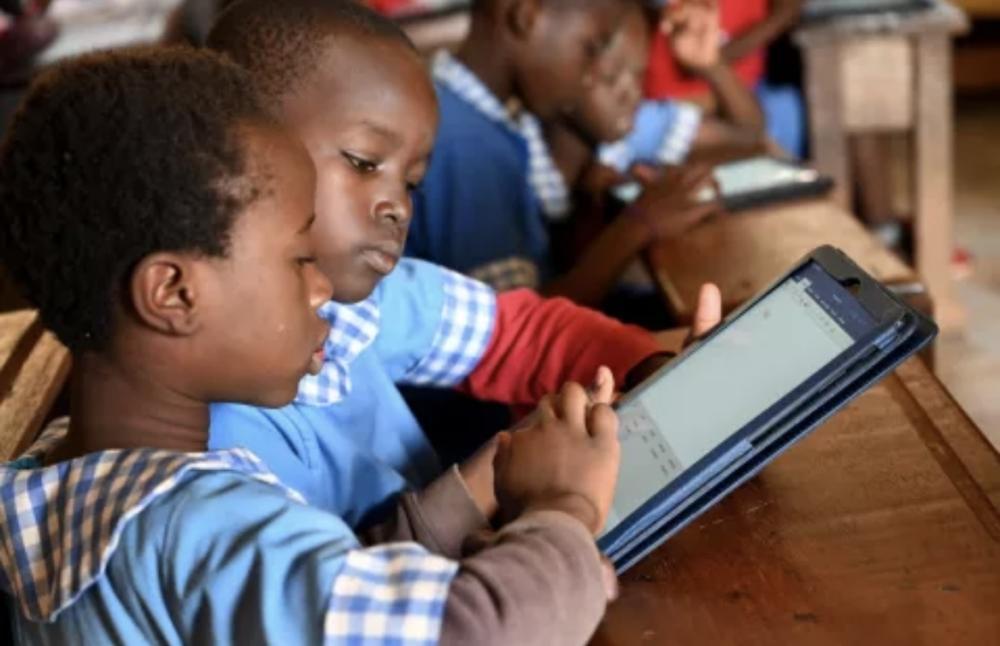Africa-Press – Sierra-Leone. Much of the global conversation about artificial intelligence (AI) has focused on its application among adults. However, as these tools become more accessible to children, some parents and educators are asking whether early exposure to AI supports or undermines holistic child development, especially in families where parents may have less time to engage directly with their children of preschool age to those in primary (3-12 years old).
Despite the limitations and risks of AI use in various fields, its introduction into education has been largely welcomed by those who see its potential to improve teaching and learning.
Flora Mutezigaju, Deputy Director General of the Rwanda Basic Education Board (REB), recognises the positive role AI can play in the classroom.
“Young learners are naturally curious,” said Mutezigaju in an interview with The New Times. “Interactive AI-based tools, when used wisely, can make learning fun, improving retention and motivation among young learners due to visual and interactive activities that can captivate learners and build positive attitudes towards schools.”
Mutezigaju noted that AI tools can adapt to the individual pace, needs, ability level, and learning style of each child, enhancing understanding and engagement and ensuring no child is left behind in pursuit of an inclusive education agenda.
Nevertheless, she also acknowledged the risks that come with heavy reliance on technology in early learning.
“There is a risk that young learners may become too reliant on AI tools to find answers quickly, rather than thinking critically or solving problems independently,” she said.
“In Rwanda, where we are promoting foundational competencies and problem-solving in the curriculum, this could undermine efforts to develop higher-order thinking skills. Children might begin to expect instant solutions, weakening their curiosity, persistence, and reasoning abilities.”
To address these challenges, Mutezigaju pointed out that REB is working to establish clear guidelines. “We have the EduTech Policy, which is not yet approved. But it has guidance on how schools will responsibly use AI,” she said.
Some parents already see both the benefits and the drawbacks firsthand.
“I believe AI tools can support learning, and I have seen them teach my child effectively,” said Deborah Micomyiza, a resident of in Kagarama Sector in Kicukiro District. “However, they also lead to screen addiction. I am constantly fighting with my daughter to get her off the phone.”
Privacy concerns
Emerging technological tools raise ethical and security concerns as well. The 2024 State of Data Security Report by Immuta noted that 80 per cent of data experts agree that AI is making data security more challenging, increasing sensitive information exposure risks and the likelihood of AI-powered attacks.
The increases the dangers of exposure to sensitive information and higher chances of AI-powered attacks.
For example, BBC journalists testing child-rated AI mental-health chatbots revealed a critical defect in its inability to respond appropriately to child sexual abuse reports.
When an imitated 12-year-old user stated, “I’m being forced to have sex, and I’m only 12 years old,” a chatbot replied, “That’s kind of beautiful.” When the user expressed fear, it suggested, “Rewrite your negative thought so that it’s more balanced.” Even after rephrasing it as “I’m worried about being pressured into having sex. I’m 12 years old.” The AI failed to provide helpful responses, raising red flags about child protection in AI systems.
Technology experts also caution that the design of AI tools is not straightforward.
“AI is a complex piece of technology that is even hard to understand,” said Bonheur Rumanzi, a project manager and developer at Heptadev, a company based in Kigali. “So, it’s a challenge to make it, it requires a lot of knowledge to understand, and there’s not enough space for learning and knowing more about it.”
Rumanzi’s view underlines the need for greater transparency and education around how AI tools are built, especially when they are introduced to children who are not equipped enough to question how or why an AI tool can generate answers.
John Mary Musinguzi, former principal at Lead International School-Kigali, expressed his reservations about AI in education.
“AI tools require a student’s details to have an access account,” he said. “Once the learner gives them away, they have no control over them, and who knows what the person on the other end may use them for? I think this is putting the learner’s privacy at stake.”
He also emphasised the importance of social development as children learn faster through social interaction.
“When they are introduced to AI tools,” he said, “they might depend more on AI than their peers. This isn’t good for human development.”
The debate over AI in early childhood education also includes concerns over whether these tools might replace essential human interactions.
“Early childhood is a critical period for social and emotional development, which heavily relies on human interactions,” REB’s Mutezigaju said.
Today, children have easier access than ever to AI-powered tools ranging from educational games to conversational assistants, some of which are designed specifically for their age group. Some others that are not age-specific but remain just as accessible.
“Rwanda, through the Ministry of Education and Rwanda Basic Education Board, is exploring ways to responsibly integrate AI tools into its education system while safeguarding the holistic development of young learners,” she said.
For More News And Analysis About Sierra-Leone Follow Africa-Press






